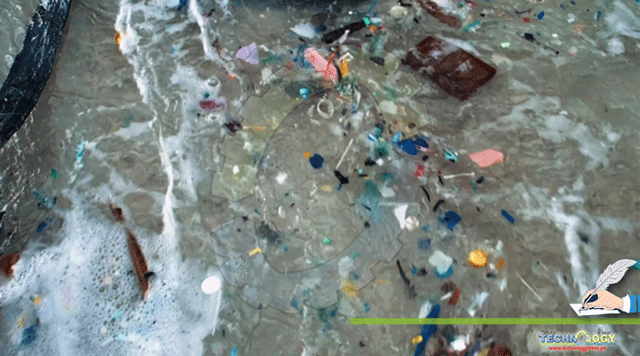Plastic is becoming a major concern in our country. It is lighter in weight and less expensive than other materials. Modern life is nothing without them yet they have serious effects on our health and environment.

By Shahid Majeed, Rao Muhammad Sajjad Sharif, Hassan Masood
Plastics are composed of repeating carbon units or chains called monomers. Plastic particle having dimensions less then 5mm are called micro-plastic. Polyethylene and nylon are the material that mostly exists in micro-plastics. They have very diverse uses in the society, -cosmetics, detergents, paints, encapsulate fertilizer, and even in life science industry such as in medical diagnostics. Plastic are present everywhere, It can linger in the environment for a long time if not properly disposed of or recycled. Plastics have been produced in 8.352 billion tones over the last six decades. The majority of it is now in landfills or in our natural surroundings. In fact, only about 9% of today’s plastic is recycled. Every year, 25 million tones of plastic waste are produced in Europe. Only 30% of the waste is sorted for recycling.
In 2020, Pakistan produced 3.9 million tonnes of plastic garbage. Around 70% of this plastic garbage (2.6 million tonnes) is mishandled, with the majority of it ending up in landfills, uncontrolled dumps, or strewn throughout the country’s land and water bodies. Pakistan has the highest percentage of mismanaged plastic in South Asia. According to a study on the presence and concentration of microplastics in the surface water and sediments of Rawal Lake, Islamabad. Water and sediments had average micro-plastic abundances of 0.142 items/0.1 L and 1.04 items/0.01 kg, respectively. Micro-plastics serve as a vector for the transportation of environmental contaminants. It enters into the environment either directly (tire abrasion, synthetic textile fibers such as peeling)or indirectly (break down of plastic objects due to UV radiation, oxidation and / or mechanical effects) routes. It can transfer up to food chain. They are readily eaten by a wide range of organisms, from mussels and planktons to fish, turtles and whales.
Every year, plastic kills millions of animals, including birds, fish, and other marine organisms. Nearly 700 species, including endangered species, have been reported to be damaged by plastics. It clogged intestines or penetrated organs, resulting in death. Plastic-filled stomachs suppress the desire to eat, leading to starvation. Elephants, hyenas, zebras, tigers, camels, cattle, and other large species have swallowed plastics, which has resulted in death in certain occasions.
Through the food chain, micro-plastics enter our bodies. These minuscule plastic particles may be hazardous to human health if they enter our body and exposure has been linked to oxidative stress, DNA damage, and inflammation, among other health issues. This is especially true when inflammation becomes persistent. It attract microorganisms such as harmful bacteria (pathogens) when they wind up in the environment. Invasion of human bodies by micro-plastics containing these organisms may raise the chance of infection. Swallowed micro-plastic particles can substantially harm organs and release harmful substances, such as hormone-disrupting bisphenol A (BPA) and insecticides, into the body, impairing immunological function and stifling growth and reproduction. Micro-plastics have the ability to accumulate up the food chain, affecting entire ecosystems, including the soil health in which we grow our food. Micro-plastics in our drinking water and in the air we breathe can directly affect individuals.
The following measures are helpful in the reduction of micro plastics. Micro-plastic should be replaced if possible, and an alternate material should be utilized instead. Plastics that are only used once should be avoided. Biodegradation should be improved because some bacteria may breakdown plastic. Plastic can be reused and recycled. Pakistan has devised tactics and plans to address the issue of plastic pollution. The usage of single-use plastic bags was prohibited in Pakistan in 2019. This effort led to the reduction of about 600,000 kg of plastic manufacture per year. Pakistan has joined the Global Plastic Action Partnership in order to execute effective initiatives across the country to minimize plastic waste output. Government officials are raising awareness through educational efforts that have received media attention. To reduce plastic trash generation, people are recommended to choose a reduce, reuse, and recycle plan.